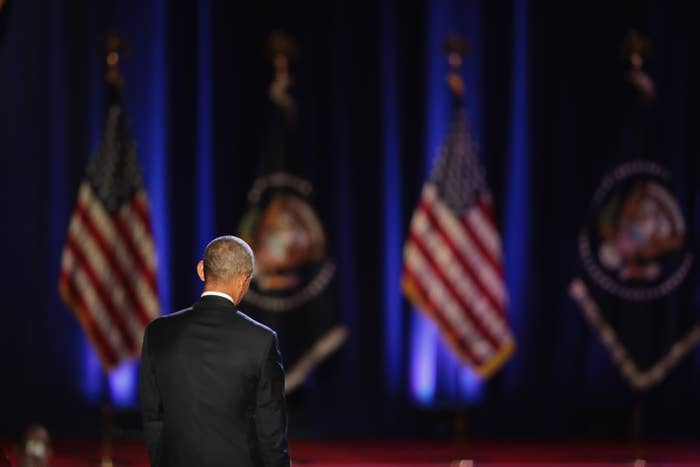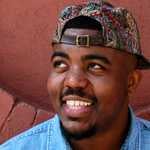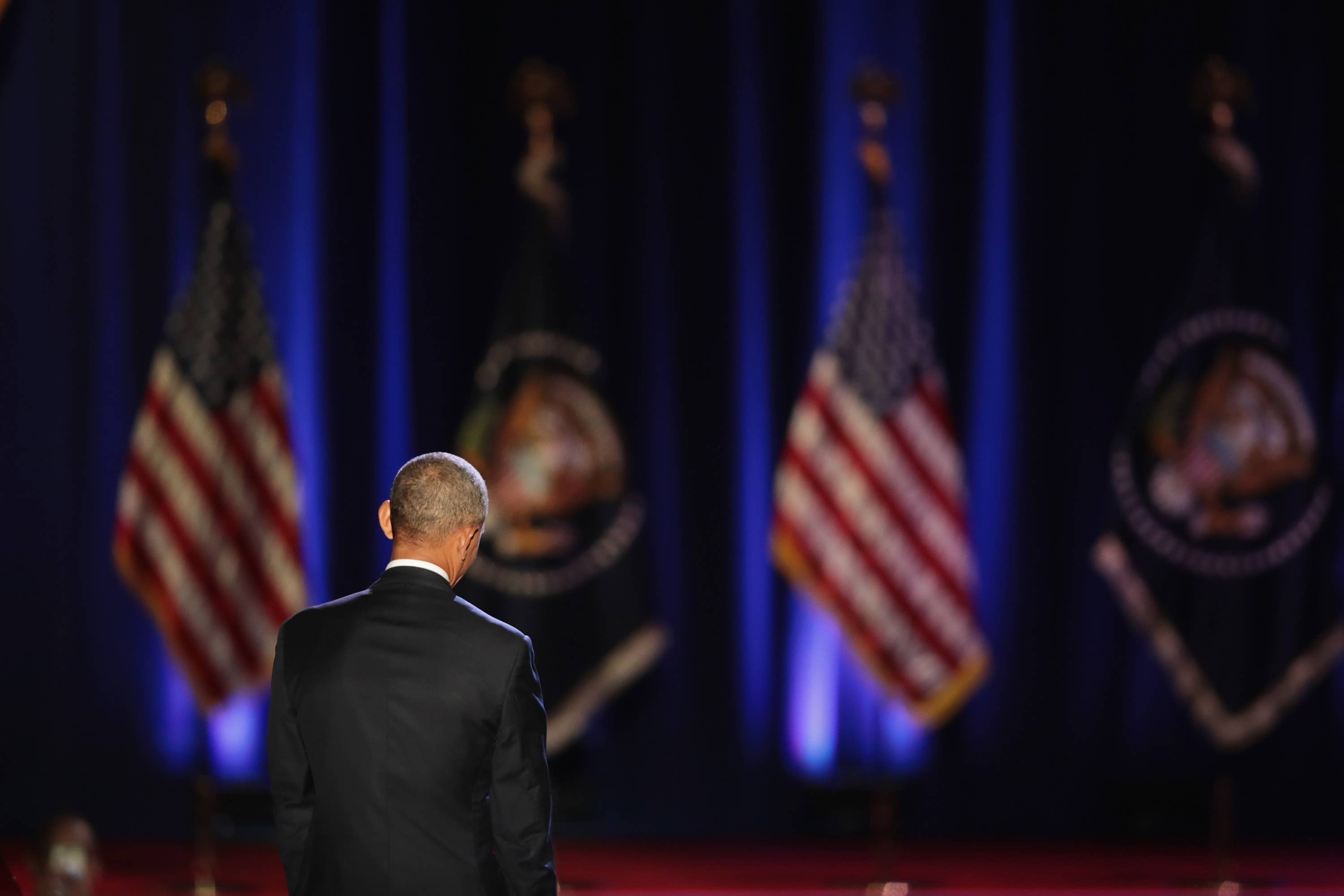
A part of Barack Obama’s legacy as a politician will always be his great skill as an orator. But aside from serving as a heartbreaking reminder that he and his amazing family are leaving office, Obama’s farewell speech in Chicago last night was pretty unremarkable.
Tuesday, President Obama gave the last speech he’ll ever give as President of the United States and perhaps the most remarkable thing about the speech perhaps was that he gave it.
Obama’s ascent to the presidency began, of course, when he delivered the keynote at the 2004 Democratic National Convention. Though he was there in support of then-candidate John Kerry, the young senator stole the show with his story about a “skinny kid with a funny name” who had hope for the imperfect union that is America. Then, Obama saved his presidential candidacy from the Jeremiah Wright scandal with a moving speech from Philadelphia in which he argued that Americans, despite racial hostility, were more alike than we thought. It worked, and voters held onto their faith in Obama and went on to elect the nation’s first black President.
In the early years of his presidency, Obama was dubbed the “explainer-in-chief” by politicos. And throughout his tenure in the White House, Obama has given masterful press conferences and other public addresses that detailed the state of American politics but also weaved in his themes of hope, change, seeing through differences, and the promise of America—the “greatest” nation on earth.
Tuesday, Obama delivered the last speech he’ll ever give as President of the United States. But perhaps the most remarkable thing about the speech perhaps was that he gave it at all. In fact, when he took the stage in Chicago to say farewell to the American public, he joined just a handful of U.S. presidents who did the same. According to historians, only 10 of the 44 U.S. presidents— George Washington, Andrew Jackson, Andrew Johnson, Harry Truman, Dwight Eisenhower, Jimmy Carter, Ronald Reagan, Bill Clinton and George W. Bush—have given outgoing addresses.
“Our democracy is threatened whenever we take it for granted. All of us, regardless of party, should be throwing ourselves into the task of rebuilding our democratic institutions,” Obama said in the last point of his farewell speech. “When voting rates in America are some of the lowest among advanced democracies, we should be making it easier, not harder, to vote. When trust in our institutions is low, we should reduce the corrosive influence of money in our politics, and insist on the principles of transparency and ethics in public service. When Congress is dysfunctional, we should draw our congressional districts to encourage politicians to cater to common sense and not rigid extremes.”
He ended the speech on even more familiar notes.
Obama’s usual message felt particularly uninspired. Indeed, it seemed Obama gave the farewell speech his legacy needed and not necessarily the one the country needs.
“I am asking you to hold fast to that faith written into our founding documents; that idea whispered by slaves and abolitionists; that spirit sung by immigrants and homesteaders and those who marched for justice; that creed reaffirmed by those who planted flags from foreign battlefields to the surface of the moon; a creed at the core of every American whose story is not yet written: Yes, we can.”
Those words, of course, were meant to evoke the memory of previous speeches given by Obama, like when he spoke to a crowd in New Hampshire on the campaign trail in January of 2008 about the “creed written into the founding documents that declared the destiny of a nation.”
“It was whispered by slaves and abolitionists as they blazed a trail towards freedom through the darkest of nights: Yes, we can,” he said in a truly iconic moment, unveiling his unforgettable campaign slogan. “It was sung by immigrants as they struck out from distant shores and pioneers who pushed westward against an unforgiving wilderness: Yes, we can. It was the call of workers who organized, women who reached for the ballot, a president who chose the moon as our new frontier, and a king who took us to the mountaintop and pointed the way to the Promised Land.”
Obama’s message of the enduring potential of Americans to come together and create a better country is present in other speeches. “In the face of a politics that's shut you out, that's told you to settle, that's divided us for too long, you believe we can be one people, reaching for what's possible, building that more perfect union,” he said in 2007 when announcing his intentions to run for President. After being elected, he began his victory speech with: “If there is anyone out there who still doubts that America is a place where all things are possible; who still wonders if the dream of our founders is alive in our time; who still questions the power of our democracy, tonight is your answer.”
To be sure, President Obama will go down in history books as one of the best public speakers elected to the highest office and probably one of the best to ever do the job. But on a day in which Dylann Roof was sentenced to death, Jeff Sessions began hearings to become the U.S. Attorney General, and news broke that President-elect Trump might be a puppet of the Russian government, Obama’s usual message felt particularly uninspired. It seemed Obama gave the farewell speech his legacy needed—but not necessarily the one the country needs right now.
It’s sad to see a leader who possesses as much measure, class, and intelligence as Obama go. It’s even sadder to know that a wretch like Donald Trump will replace him. It’s for that reason, I think, that Obama’s speech was met with tears by many Americans—not because they were moved by the words coming out of his mouth. We’ve heard those words before, and they actually ring quite hollow these days.

